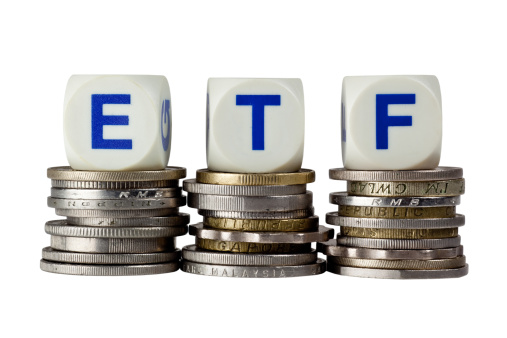There is a big lesson here for Global X FTSE Greece 20 ETF (NYSEMKT: GREK) investors during the looming Greek default and likely exit from the euro. The end game for this exchange traded fund (ETF) is still one that can go either way. This fund was designed to track the FTSE/ATHEX Custom Capped Index. So what do you do when a stock market is closed for multiple days? Will this be a real ETF?
The first thing that investors need to consider is that there is an ongoing lesson in the iShares China Large-Cap ETF (NYSEMKT: FXI) and also in the Market Vectors Egypt Index ETF (NYSEMKT: EGPT). The ETF for China example might lower investor fears, but the Egypt ETF may spook investors.
With investors considering the more harsh case currently, Egypt is a better example. The good news here is that Greece is not in a state of revolution and there no de facto state of civil war. The bad news is that Greece is on the verge of default and may be on the brink of leaving or being kicked out of the euro. As we noted back in 2011 during the Egypt violence:
The Market Vectors Egypt Index ETF (NYSE: EGPT) is very close to getting prove whether it is an exchange-traded fund or whether it is an exchange-traded price discovery vehicle. After nearly two months of (Egypt’s markets) being closed, this Wednesday is supposed to mark the return of equity trading in Cairo.
ALSO READ: Many Closed-End Bond Funds With Massive Discounts to NAV vs ETFs
That means that the ETF was effectively a headline-tracker rather than an index follower. It also meant that no new units could be created or eliminated, and there was no real benchmark the ETF could track. What if Greece nationalizes its banks, closes the banks and markets, and sorts out its internal politics while it needs time to relaunch the drachma currency?
Fortunately, there is a lesser of two evils to consider. It also comes up annually.
Before investors panic here, there is a far less sinister example of when ETF investors have to consider on how to peg a market. The iShares China Large-Cap ETF tracks the FTSE China 50 Index. This ETF has a hard time trading for roughly a week of each year — around Chinese New Year. The world does not come to an end around then. That being said, the Chinese markets are so volatile right now that they might want a week off too.
As of June 29, 2015, the following top holdings were shown as follows on the Global X fund summary:
- 25.05% COCA-COLA HBC A.G.
- 9.94% HELLENIC TELECOM
- 9.36% NATIONAL BANK OF GREECE
- 4.72% ALPHA BANK A.E.
- 4.63% EUROBANK ERGASIAS S.A.
- 4.26% OPAP S.A.
- 4.11% PIRAEUS BANK S.A.
- 3.94% OPAP S.A.
- 3.60% PUBLIC POWER
- 3.16% JUMBO S.A.
The Global X FTSE Greece 20 ETF was up 5% at $9.97 in late morning trading on Tuesday, but that ETF fell by 20% to $9.42 on Monday from a prior close of $11.78.
ALSO READ: The Fallout of Greek Shame
The Greek ETF currently will be considered at risk of losing its ETF status. Still, it will be difficult to create or eliminate new shares with its underlying index and markets closed. We will not ponder the what-if scenario if the Greek markets end up being closed for a longer time than is currently expected.
Are You Ahead, or Behind on Retirement? (sponsor)
If you’re one of the over 4 Million Americans set to retire this year, you may want to pay attention.
Finding a financial advisor who puts your interest first can be the difference between a rich retirement and barely getting by, and today it’s easier than ever. SmartAsset’s free tool matches you with up to three fiduciary financial advisors that serve your area in minutes. Each advisor has been carefully vetted, and must act in your best interests. Start your search now.
Don’t waste another minute; get started right here and help your retirement dreams become a retirement reality.
Thank you for reading! Have some feedback for us?
Contact the 24/7 Wall St. editorial team.





